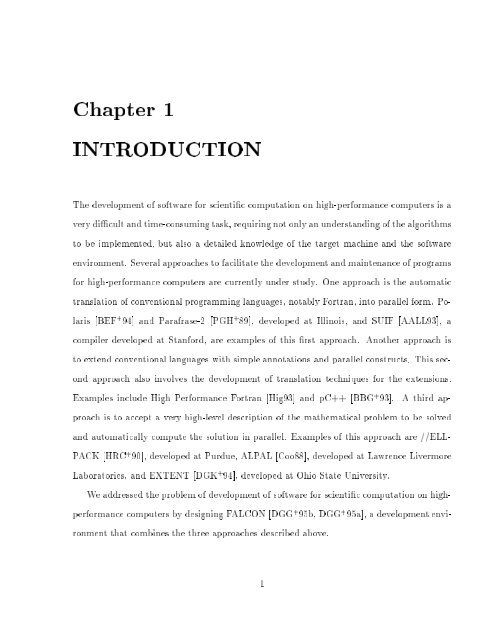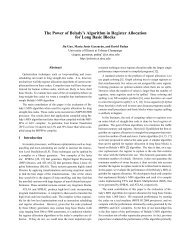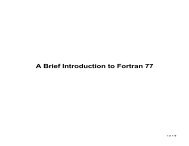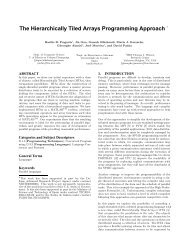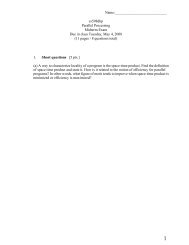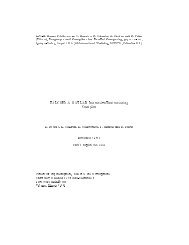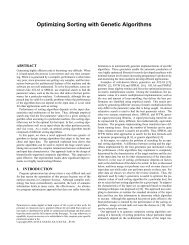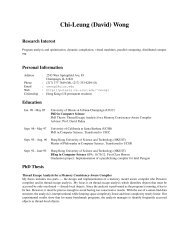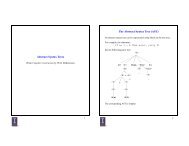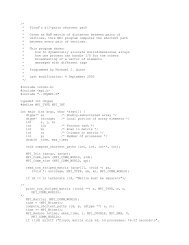COMPILER TECHNIQUES FOR MATLAB PROGRAMS ... - CiteSeerX
COMPILER TECHNIQUES FOR MATLAB PROGRAMS ... - CiteSeerX
COMPILER TECHNIQUES FOR MATLAB PROGRAMS ... - CiteSeerX
Create successful ePaper yourself
Turn your PDF publications into a flip-book with our unique Google optimized e-Paper software.
Chapter 1<br />
INTRODUCTION<br />
The development ofsoftware for scientic computation on high-performance computers is a<br />
very dicult and time-consuming task, requiring not only an understanding of the algorithms<br />
to be implemented, but also a detailed knowledge of the target machine and the software<br />
environment. Several approaches to facilitate the development and maintenance of programs<br />
for high-performance computers are currently under study. One approach is the automatic<br />
translation of conventional programming languages, notably Fortran, into parallel form. Polaris<br />
[BEF + 94] and Parafrase-2 [PGH + 89], developed at Illinois, and SUIF [AALL93], a<br />
compiler developed at Stanford, are examples of this rst approach. Another approach is<br />
to extend conventional languages with simple annotations and parallel constructs. This second<br />
approach also involves the development of translation techniques for the extensions.<br />
Examples include High Performance Fortran [Hig93] and pC++ [BBG + 93].<br />
A third approach<br />
is to accept a very high-level description of the mathematical problem to be solved<br />
and automatically compute the solution in parallel. Examples of this approach are //ELL-<br />
PACK [HRC + 90], developed at Purdue, ALPAL [Coo88], developed at Lawrence Livermore<br />
Laboratories, and EXTENT [DGK + 94], developed at Ohio State University.<br />
We addressed the problem of development of software for scientic computation on highperformance<br />
computers by designing FALCON [DGG + 95b, DGG + 95a], a developmentenvironment<br />
that combines the three approaches described above.<br />
1


